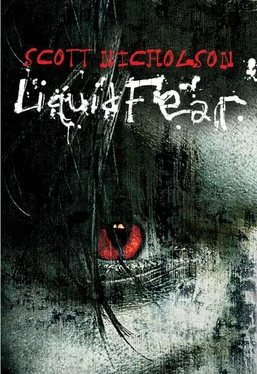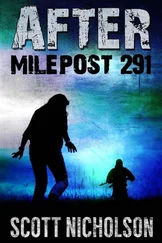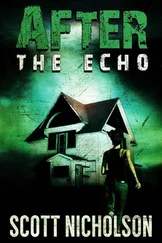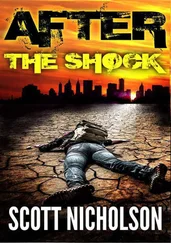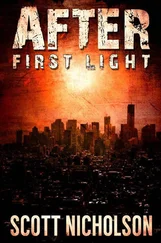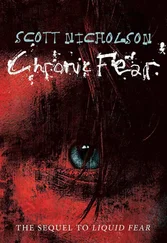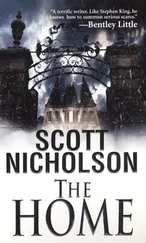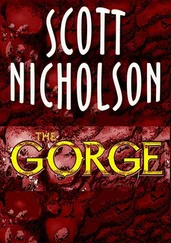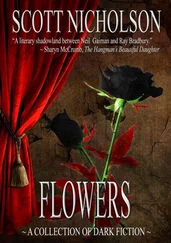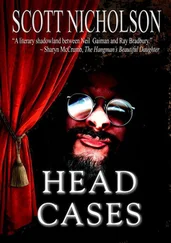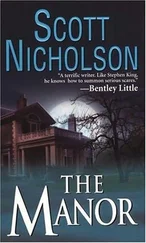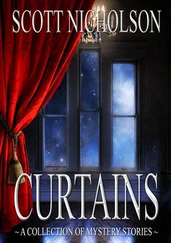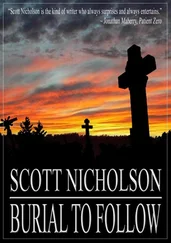Scott Nicholson - Liquid fear
Здесь есть возможность читать онлайн «Scott Nicholson - Liquid fear» весь текст электронной книги совершенно бесплатно (целиком полную версию без сокращений). В некоторых случаях можно слушать аудио, скачать через торрент в формате fb2 и присутствует краткое содержание. Жанр: Триллер, на английском языке. Описание произведения, (предисловие) а так же отзывы посетителей доступны на портале библиотеки ЛибКат.
- Название:Liquid fear
- Автор:
- Жанр:
- Год:неизвестен
- ISBN:нет данных
- Рейтинг книги:3 / 5. Голосов: 1
-
Избранное:Добавить в избранное
- Отзывы:
-
Ваша оценка:
- 60
- 1
- 2
- 3
- 4
- 5
Liquid fear: краткое содержание, описание и аннотация
Предлагаем к чтению аннотацию, описание, краткое содержание или предисловие (зависит от того, что написал сам автор книги «Liquid fear»). Если вы не нашли необходимую информацию о книге — напишите в комментариях, мы постараемся отыскать её.
Liquid fear — читать онлайн бесплатно полную книгу (весь текст) целиком
Ниже представлен текст книги, разбитый по страницам. Система сохранения места последней прочитанной страницы, позволяет с удобством читать онлайн бесплатно книгу «Liquid fear», без необходимости каждый раз заново искать на чём Вы остановились. Поставьте закладку, и сможете в любой момент перейти на страницу, на которой закончили чтение.
Интервал:
Закладка:
The experiment. Me, Wendy, that professor. Wasn’t there some more people?
He had a headache so he went back to picturing Wendy, standing in the brilliance of a sun-splashed room, painting naked, breasts swaying sensually as she danced with the brush.
Then his vision shifted to what she was painting-Susan after what they’d done to her-and he nearly drove off the road.
He popped open the vial with one hand and swallowed the pill even though it went down like a bone.
God, please don’t make me see that again.
CHAPTER TWENTY-ONE
The Eshelman School of Pharmacy was one of UNC’s education and research wings, part of a complex that had grown over the years to connect the university with Memorial Hospital.
Mark had taken a few classes there to augment his business degree, because even as a teen he’d understood where the money of the future would be flowing. That was where he’d met Alexis, who was already working on her doctorate.
Now, entering the brick building, he saw how little the building had changed-the same uncomfortable benches, waxy potted plants, and somber portraits of past benefactors. That stood in stark contrast to how much he’d changed in the interim. He’d worked so hard to showcase his maturity to Alexis that he wondered if that was when he’d first become an actor and his life a role scripted by others.
He knocked on Dr. Ayanadi’s lab door, even though he’d called ahead to make the appointment. The doctor opened the door, smiling and extending a brown hand. His jet-black hair was cut in a bowl shape, and his thick glasses were held in place by hairy ears. “Mark Morgan, my successful pupil.”
“I only got a C, remember?”
“Yes, yes, but you’ve gone on to bigger things. Most of my C students are pushing lunch carts in the hospital.”
“I married well,” Mark said.
“That you did. And how is Dr. Morgan?”
I wish I knew. “She’s busy with the bioethics council. You know how much she hates politics, but somebody’s got to fight for what’s right.”
Ayanadi nodded. “But you didn’t come here for a philosophical discussion. You sound worried.”
Mark glanced around the small lab. Most major research was conducted off campus, in the RTP, but tenured faculty like Ayanadi were given personal-sized labs, mostly to support journal publication and justify grant requests. Ayanadi, though, had a modern electron microscope and gleaming gear that Mark didn’t recognize, which clashed with the chipped counters and 1950s-era sink.
“What do you know about Sebastian Briggs?”
Ayanadi’s dark eyes narrowed. “We don’t like to speak of him around here. That could have been bad for all of us.”
“It might be bad for all of us now.”
“Mark, I appreciate CRO’s contributions to our research, but we always must keep the business and the personal separate. We can be friends but a researcher avoids the appearance of favoritism.”
“I’m not here for CRO. I’m here for my wife.”
Ayanadi glanced wistfully at the papers and computer near his microscope, as if he’d rather be lost in routine. He sighed and said, “As you know, Briggs was something of a maverick. Early on, his flamboyance was…tolerated, because he brought in grants and published a few significant articles at a young age.”
“I’ve read the records,” Mark said. “I need to know what’s under them, the stuff that got cut out.”
“Even now, we must avoid that. Surely your wife told you more than I could.”
“She doesn’t remember. It seems like nobody remembers. It’s either the biggest case of collective amnesia since the Holocaust or somebody’s hiding something.”
Ayanadi moved around Mark and closed the door. “Very well. I will tell you the rumors, but I must warn you, I have no evidence to support any of this, and you know how much that repels me as a scientist.”
“I promise, Doctor, I won’t dispute any of your conclusions. I have some of my own that nobody would believe.”
“Briggs received doctorates in both psychology and neurobiology. We don’t get many of the softer sciences in this building.”
“Softer skulls” is what you mean. The touchy-feely doesn’t go well with the numbers racket. “He was running experiments.”
“You’ve seen the records. He used student volunteers, and while it’s not unusual to use students in the early trials of drug testing, Briggs apparently conducted what one might call a ‘bait and switch.’”
“Pretending he was testing one drug on paper while he was actually running something else?”
“Yes. Hardly uncommon, sadly, in the history of therapeutic drugs. Our branch has been just as complicit in some of the horrors of modern psychiatry, such as insulin shock therapy and the designer drugs of the fifties and sixties. And it’s likely Briggs would have gotten away with it if not for Susan Sharpe. But I imagine your wife has told you about her?”
Mark was about to nod out of habit but realized he would get more information by acting ignorant. He’d never heard of Susan Sharpe. “She doesn’t like to talk about that.”
“We still aren’t sure what happened, but we’ve pieced together a trial with six participants. Your wife, of course, was both a participant and Briggs’s graduate assistant. Though who knows whether her participation was voluntary.”
“Yeah,” Mark said. “That was a traumatic experience, and I think she blocked it out.”
Ayanadi nodded. “Briggs was testing fear response, one of the favorite subjects of psychologists. On paper, he was conducting a simple maze experiment, similar to the Stanford Prison Experiment in which volunteers divided into the roles of guards and prisoners. They soon socialized and adapted to those roles, so much so that guards turned violent and the prisoners had trouble adjusting back to their regular lives.”
“In other words, the make-believe became real.”
“Yes, and whatever happened out there with Briggs must have been terrible.”
“Out there? The records said the trials were conducted here in the pharmacy school.”
Ayanadi’s face pinched in anguish. “Yes, that’s what the papers say. There was a big hush-hush, so much at stake, lawsuits and funding. The dean and chancellor thought it best to have it appear as a tragic accident. Susan Sharpe’s body was found at the foot of the stairs in the basement, suffering multiple contusions.”
Mark wondered why his wife never mentioned the incident, but he also couldn’t accept she had any part in it. “I don’t understand.”
“Whatever Briggs did to those volunteers, somehow Susan Sharpe was beaten to death as a result.”
“No,” Mark said, reluctant to believe the nation’s oldest university had skeletons in its closet. But he of all people should know that the most polished veneer could hide the most alarming atrocities. CRO bent ethical rules as a standard operating procedure.
“No charges filed,” Ayanadi said. “That would have been disastrous to all involved. The university police handled the investigation, the Board of Trustees negotiated in closed session, and a football booster funded the confidential settlement with the Sharpe family. The official report said she died here from a fall down the stairs. A tragic accident.”
Mark had seen photographs of domestic-violence victims, people who had taken a pounding yet walked away. He couldn’t picture the amount of blows it would take to kill someone.
He now remembered reading about the incident in the Daily Tar Heel. With a student population of 26,000 people, a death was unusual but quickly swept past in the bustle of rock bands, politics, frat parties, and sports.
“Susan Sharpe,” Mark said. “She was a student?”
Читать дальшеИнтервал:
Закладка:
Похожие книги на «Liquid fear»
Представляем Вашему вниманию похожие книги на «Liquid fear» списком для выбора. Мы отобрали схожую по названию и смыслу литературу в надежде предоставить читателям больше вариантов отыскать новые, интересные, ещё непрочитанные произведения.
Обсуждение, отзывы о книге «Liquid fear» и просто собственные мнения читателей. Оставьте ваши комментарии, напишите, что Вы думаете о произведении, его смысле или главных героях. Укажите что конкретно понравилось, а что нет, и почему Вы так считаете.
